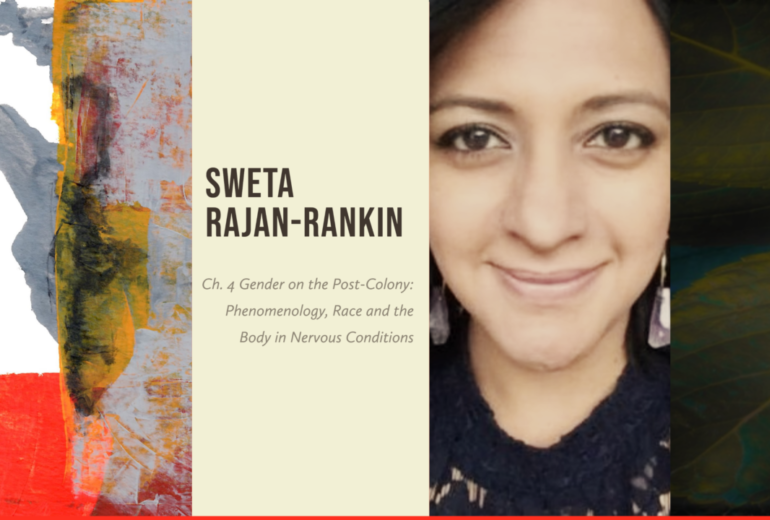Ch4. Gender on the Post-Colony: Phenomenology, Race and the Body in Nervous Conditions
Sweta Rajan-Rankin is Senior Lecturer at the School of Social Policy Sociology and Social Research (SSPSSR), Division of Law Society and Social Justice at the University of Kent. Her research investigates embodiment and racialized belongings in a range of areas, including transnational service work, migration and bordering, and new materialisms and Black identity. By bringing together post-colonial imaginaries and embodiment, her work explores historically situated understandings of citizenship, identity, and belonging among marginal communities. She has served as Director of the Migration, Ethnicity, Race and Belonging research cluster, co-convenor of the British Sociological Association (BSA) Race Ethnicity Study Group, and is an editorial board member of Sociological Review.
Related Co-author with Mrinalini Greedharry
Home » Blog » 



